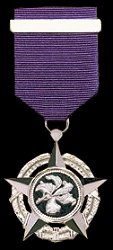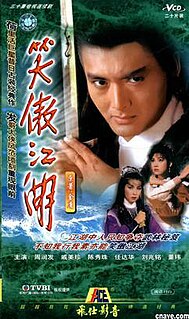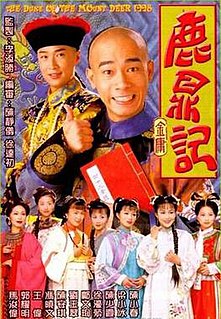Related Research Articles

The Grand Bauhinia Medal is the highest award under the Hong Kong honours and awards system; it is to recognise the selected person's lifelong and highly significant contribution to the well-being of Hong Kong. The awardee is entitled to the postnominal letters GBM and the style The Honourable. The award was created in 1997 to replace the British honours system, following the transfer of sovereignty to the People's Republic of China and the establishment of the Hong Kong Special Administrative Region. Bauhinia, Bauhinia blakeana, is the floral emblem of Hong Kong.

The Silver Bauhinia Star is the second Bauhinia Star rank in the honours system of Hong Kong, awarded to people who have taken a leading part in public affairs or voluntary work over a long period. The award was created in 1997 to replace the British honours system after the transfer of sovereignty to People's Republic of China and the establishment of the Hong Kong Special Administrative Region.

The Bronze Bauhinia Star is the lowest rank in Order of the Bauhinia Star in Hong Kong, created in 1997 to replace the British honours system of the Order of the British Empire after the transfer of sovereignty to People's Republic of China and the establishment of the Hong Kong Special Administrative Region (HKSAR).
A list of awards given to members of the Hong Kong Civil Service:

The Drive of Life is a 2007 grand production drama by TVB and CCTV as a joint production. It was specially filmed to celebrate the 10th Anniversary of the handover of Hong Kong back to China from Britain during the period of 1997-2007.

The Legend of the Condor Heroes is a Hong Kong television series adapted from Louis Cha's novel of the same title. The series was first broadcast on TVB Jade in 1994.

The Duke of Mount Deer is a Hong Kong television series adapted from Louis Cha's novel The Deer and the Cauldron, produced by TVB and starring Andy Lau and Tony Leung. It was first aired on TVB Jade in from 9 July to 31 August 1984.

Demi-Gods and Semi-Devils is a 1982 Hong Kong's TVB television series adapted from Louis Cha's novel Demi-Gods and Semi-Devils. The 50-episode-long series is divided into two parts, with their Chinese titles as 天龍八部之六脈神劍 for 30 episodes and 天龍八部之虛竹傳奇 for 20 episodes respectively.

Demi-Gods and Semi-Devils is a Hong Kong television series adapted from Louis Cha's novel of the same title. It was first broadcast on TVB in Hong Kong in 1997.

The Condor Heroes 95 is a Hong Kong television series adapted from Louis Cha's novel The Return of the Condor Heroes. It was first broadcast on TVB Jade in Hong Kong in 1995. Many of the cast from The Legend of the Condor Heroes (1994) reprised their roles in this series, such as Lau Dan and Wayne Lai. In addition, Jason Pai reprised his breakthrough role as Kwok Ching, whom he previously portrayed in The Legend of the Condor Heroes (1976) and The Return of the Condor Heroes (1976).

The Smiling, Proud Wanderer is a Hong Kong wuxia television series adapted from Louis Cha's novel of the same title, starring Chow Yun-fat and Rebecca Chan. It was first broadcast on TVB Jade in Hong Kong from in 1984.

State of Divinity is a Hong Kong television series adapted from Louis Cha's novel The Smiling, Proud Wanderer. It was first broadcast on TVB in Hong Kong in 1996.

The Legend of the Condor Heroes is a Hong Kong television series adapted from Louis Cha's novel of the same title. The series was first broadcast on CTV in Hong Kong in 1976.

The Duke of Mount Deer is a Hong Kong television series adapted from Louis Cha's novel The Deer and the Cauldron. It was first aired on TVB in Hong Kong in 1998.

Rain in the Heart is a 1990 Hong Kong television serial drama produced by TVB and starring Roger Kwok, Dominic Lam, Kathy Chow and Gallen Lo.
The Hong Kong Special Administrative Region Basic Law Consultative Committee was an official body established in 1985 to canvass views in Hong Kong on the drafts of the Hong Kong Basic Law.
The Chinese Representative Council was a council consisting of leading local Chinese and Eurasian community leaders by Japan during the Japanese occupation of Hong Kong.
The election for the Hong Kong deputies to the 10th National People's Congress (NPC) was held on 3 December 2002. 36 Hong Kong deputies were elected by an electoral college.